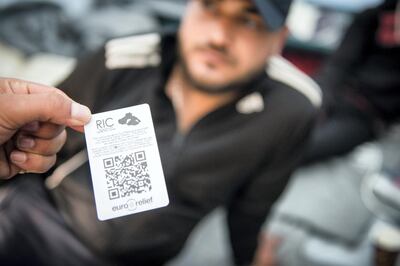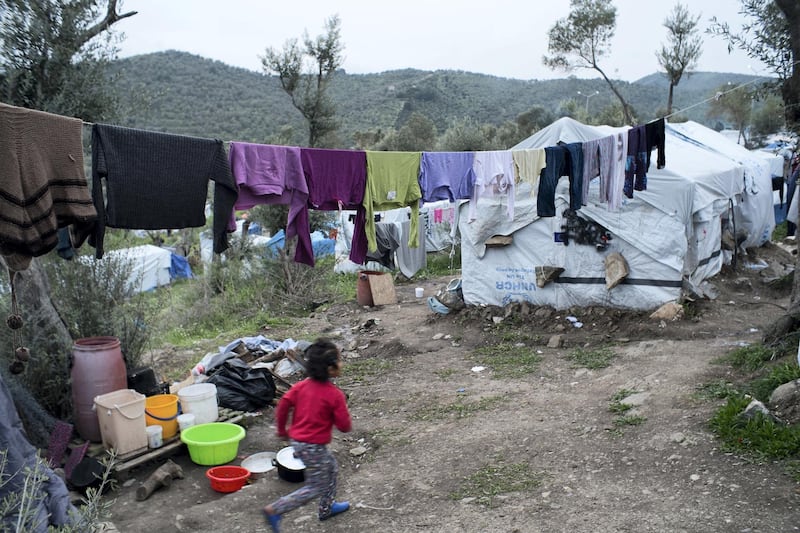Washing clothes in a bucket, Mohammed Khalid chuckles with a hollow laugh, his red hands fumbling in the cold water. “I didn’t think we would be doing this in Europe,” he mutters.
Standing alongside his brother Abu Amar, the Palestinian refugee who fled from Damascus’ Yarmouk camp in January tells of his relief after escaping the five-year-siege. “It was ISIL on one side of the street, and Al Qaeda on the other,” adds Abu Amar.
Despite a European Union deal with Turkey to intercept those fleeing west, the Greek islands are still receiving refugees. Last week more than 300 arrived on boats from Turkey to the island of Lesbos.
Yet for many, Europe is no longer a refuge, but a festering trap instead.
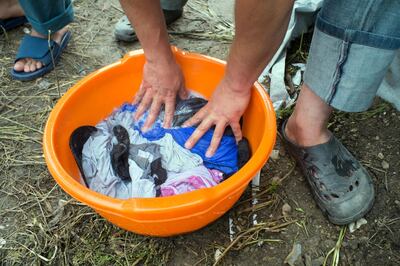
In Lesbos' Moria holding camp there is a putrid stench in the air, and residents say drug use is rife. Outside the camp’s main gate, a young Afghan child plays with a syringe. People are often packed 20 or more into a tent. So great is the fear of sexual violence among some of the women, they chose to wear nappies at night to avoid leaving their tent in search of a toilet.
Seven years after the start of the war, some refugees are considering the agonising prospect of returning to the conflict zone they fled, others have become suicidal.
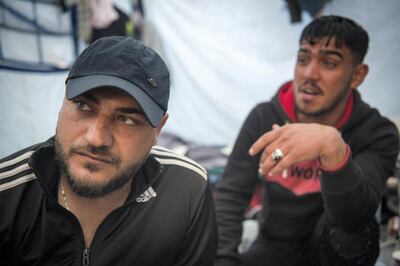
Last week 26-year-old Qusay received a black stamp on his papers – for the second time. The young Syrian had been barred from joining the rest of his family as they left Moria and moved on to the Greek mainland as they continued to search for a new home in Europe.
The rejection and prospect of separation from his family was too much. Qusay took himself to the front of the camp’s European Asylum Support Office and set himself on fire. For a few moments he frenzied in agony, before others extinguished the flames on his back.
It was a symbolic act. In December 2010, Mohamed Bouazizi, a Tunisian fruit vendor self-immolated in an act widely regarded as the spark that ignited the Arab spring. Revolutions of varying success ensued in Tunisia, Libya, Egypt, Syria and Yemen – all because of one man’s desperate act. Now a similar level of despondence is becoming the norm among those who have fled the region’s wars in search of the European dream.
Just weeks ago a despairing Muhanad, 23, also from Yarmouk climbed one of the camp's electricity poles and grabbed the live wires. A massive shock jolted him to the ground and a video of him being rushed into hospital shows him writhing in pain, the left side of his body badly charred. "It was the stress, getting to Europe is more stressful than leaving Yarmouk," he told The National.
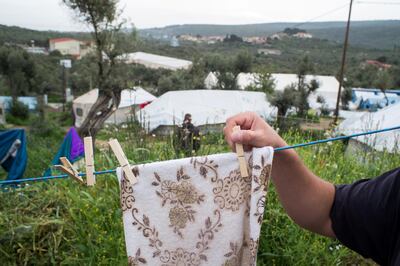
He had been trying to see a psychiatrist for weeks before, but said he had been placed low on the waiting list.
In January, Medicines Sans Frontiers' (MSF) psychiatric clinic in the camp had a backlog of 500 people; the clinic is the only effort to meet the psychiatric needs of the island’s refugee population.
So stretched are resources on the island, that merely admitting to suicidal thoughts doesn’t warrant immediate psychiatric treatment. “We can usually see them after a couple of suicide attempts,” said Luca Fontana, 33, the man coordinating MSF's response.
_______________
Read more:
Exiled Syrian doctors go back to work helping refugees in Turkey
Immigration an issue on France's Indian Ocean island of Mayotte
Editorial:The long drawn out war in Syria is a global crisis
_______________
Missing two front teeth, and tattooed with the scars of an airstrike in Damascus, Khalid, 32, has started to become disillusioned too. “I had dreams to get to Europe, but now I’d go back if they wouldn’t arrest me. They don’t want us here. Bashar [Al Assad] was better than this, that is not something Europe should be proud of,” he said.
Turning back is itself fraught with danger. Many who fled Syria are wanted by the regime for dodging mandatory military service which now demands five years - short of paying bribes, they will almost certainly be jailed for returning.
Earlier this month a list of some 1.5 million names of those wanted by the Syrian regime for opposing Mr Al Assad was leaked, many for the most marginal of infractions. “The regime does not forget, it will never forget,” adds Khalid.
Despite the dangers, so hostile is Europe that some are returning anyway. “My brother-in-law went back to Damascus last week from Athens,” said Muhanad. “He borrowed thousands of dollars to get to Europe, now he just hopes the regime won’t find him. We don’t want to go back to Syria, it’s not safe, but we can’t stay in this camp.”
Increasingly, Syrians are choosing to return rather than wait out the squalor of Europe’s refugee camps.
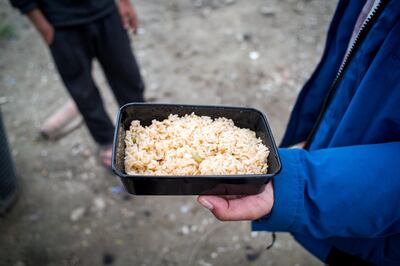
Two years after the EU and Turkey deal to stem the amount of migrants travelling to Europe, the number of those crossing is down from more than 1.2 million in 2015 to just over 13,000 so far this year.
But Marios Andriotis, a senior adviser to the mayor of Lesbos, questions the human cost of that deal.
“Some provisions of the EU-Turkey statement have created other issues in Lesvos,” he said. “The imposition of geographical restrictions to the asylum seekers – it blockades asylum seekers on the island until they conclude their asylum procedures. Some have been here for 9-10 months, even a year sometimes.”
There have also been problems with promised EU support not materialising. Since the peak of the crisis in 2015, when the island took in more than half a million arrivals - despite a population of only 80,000 - the municipality of Lesbos has received just €750,000 (Dh3.4 million) in financial support. “The island isn’t asking for funding to reimburse their humanity,” explained Mr Andriotis.
“Everyone knows what happened in Lesbos, we are very proud of our humanitarian response, but if the European Commission and central government doesn’t take action to improve the conditions in Moria, then it ruins the response of the local community.”
Today's refugee crisis, said MSF's Mr Fontana, is being fuelled by their complete loss of hope.
“These people have been through torture, war and sexual violence, but now this island is a prison. They have no control over their own future," he explained.
Mr Fontana lays the blame for Moria’s especially bad conditions on the EU-Turkey deal. “I have been working in some of the worst war zones in the world, but we’ve never seen such a high level of suffering as on the island, and what’s really hard is that it’s done on purpose. The price is paid here, inside Moria.”
